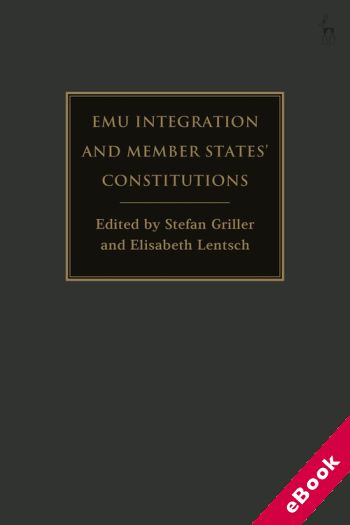
The device(s) you use to access the eBook content must be authorized with an Adobe ID before you download the product otherwise it will fail to register correctly.
For further information see https://www.wildy.com/ebook-formats
Once the order is confirmed an automated e-mail will be sent to you to allow you to download the eBook.
All eBooks are supplied firm sale and cannot be returned. If you believe there is a fault with your eBook then contact us on ebooks@wildy.com and we will help in resolving the issue. This does not affect your statutory rights.
In this book, legal scholars from the EU Member States (with the addition of the UK) analyse the development of the EU Member States' attitudes to economic, fiscal, and monetary integration since the Treaty of Maastricht.
The Eurozone crisis corroborated the warnings of economists that weak economic policy coordination and loose fiscal oversight would be insufficient to stabilise the monetary union. The country studies in this book investigate the legal, and in particular the constitutional, pre-conditions for deeper fiscal and monetary integration that influenced the past and might impact on the future positions in the (now) 27 EU Member States.
The individual country studies address the following issues:
Offering a comprehensive and detailed assessment of the legal and constitutional developments concerning the Economic and Monetary Union since the Treaty of Maastricht, this book provides not only a study of legal EMU-related measures and reforms at the EU level, but most importantly sheds light on their perception in the EU Member States.